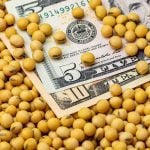chicago / reuters / U.S. agribusiness Cargill Inc. said on March 28 it had no comment regarding a market rumour that it was planning an initial public offering. “Our company does not comment on market rumours,” Cargill spokeswoman Lisa Clemens said. Talk about an IPO among traders and investment bankers surfaces periodically about Minneapolis-based Cargill,



